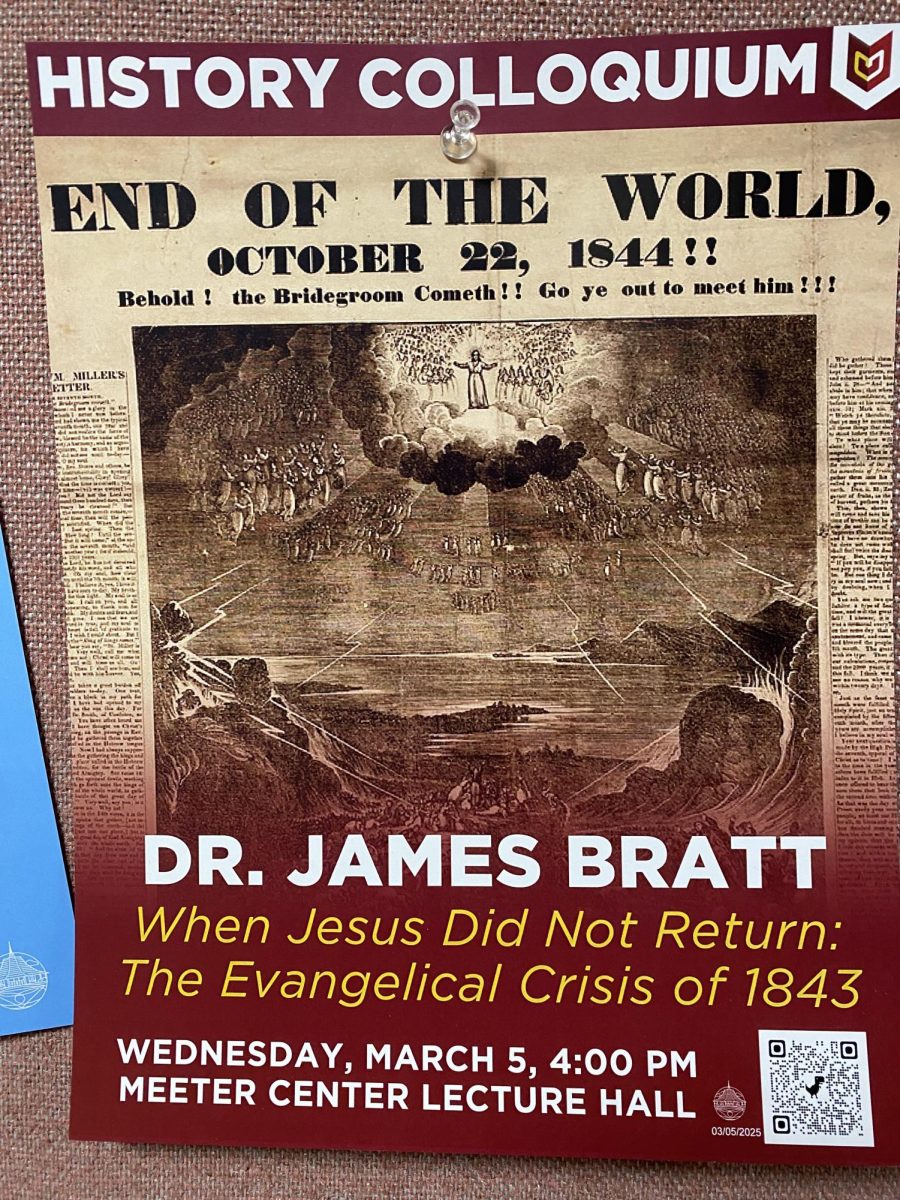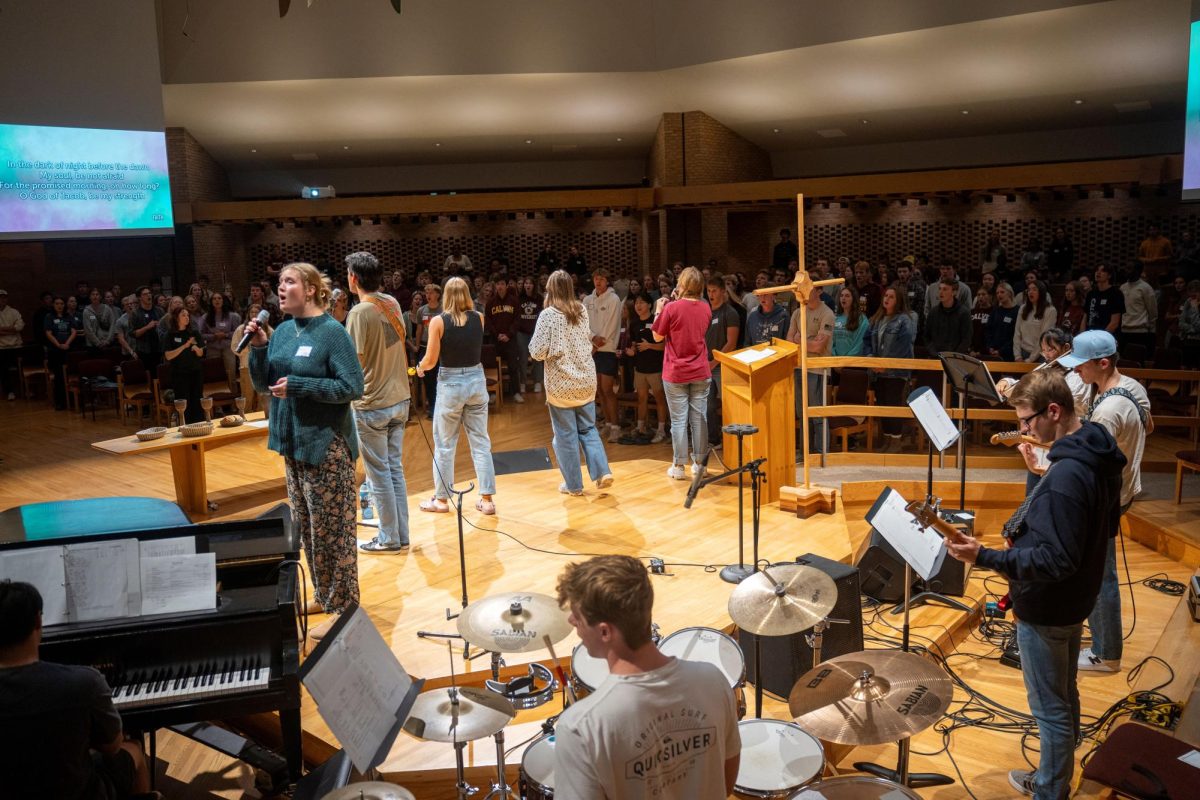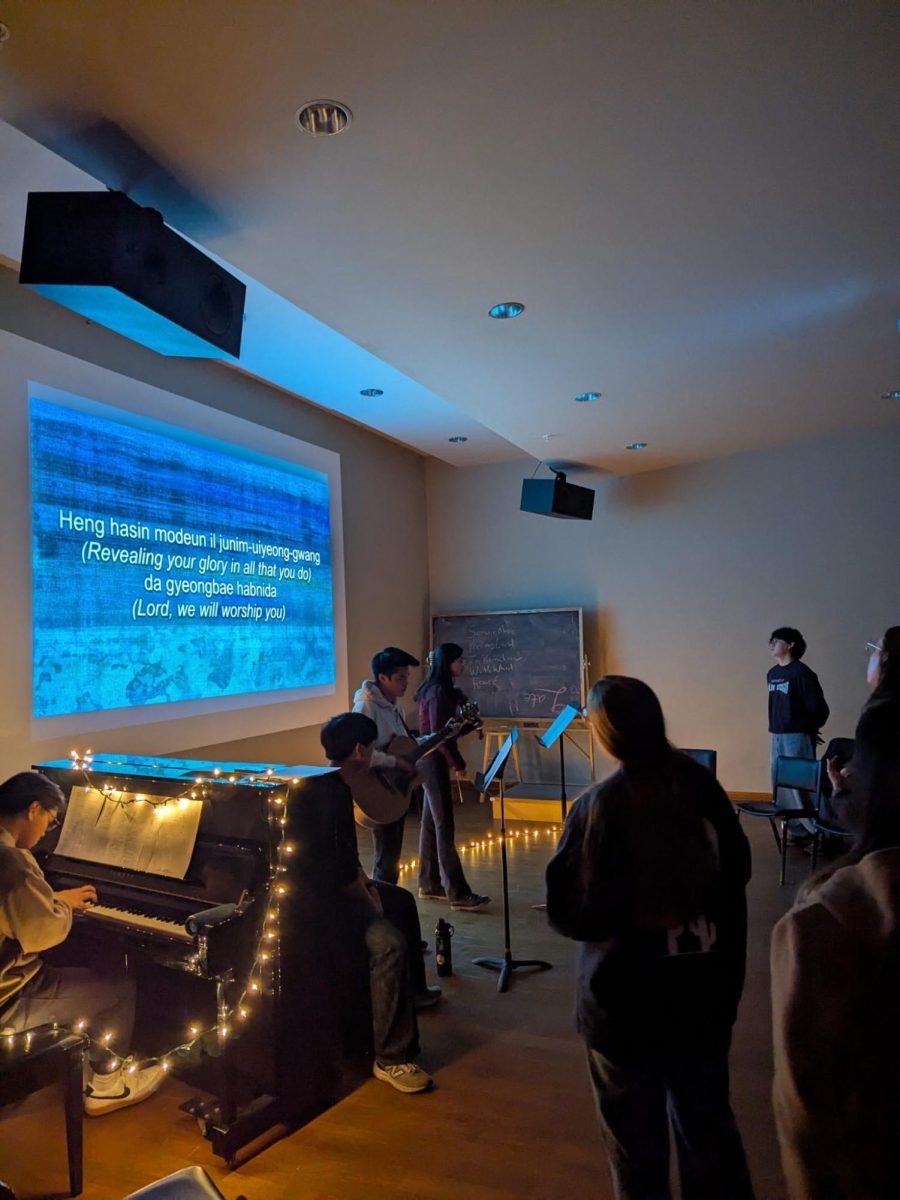It’s crunch time. Finals are less than a week away, and that term paper due two days ago has not yet hit the printer. Your calendar is full, and adding one more event is, well, unimaginable.
But not for a few students. In fact, the busyness is a central reason why a few students on campus have added an event — or rather, a season: Advent.
Senior Sarah Stripp was counting down the days to Dec. 1, the start of the four-week Advent period leading to Christmas. She said the season takes her focus off pressing deadlines and all the baggage that comes with Christmas, not to mention exams.
“Christmas often gets dominated by other activities,” Stripp said. “Advent is a season of expectation, preparing for the incarnation.”
Senior Kellan Day, who shares Stripp’s excitement, said Advent never used to be a “conscious thing” for her.
She said the season was often only associated with purple candles and perhaps a few extra church readings, and she did not understand its full meaning. Now, the season is much more for her.
“[Advent is about] being pregnant with hope,” Day said, an odd statement to make if one doesn’t have an understanding of a few ideas behind Advent. “What does it mean to be pregnant with hope?”
John D. Witvliet, director of the Institute for Christian Worship, helps to unpack this strange question.
“Advent is a season of longing,” Witvliet said. “It focuses on both Jesus’ first advent in Bethlehem and his second coming at the end of time. Advent hinges on an analogy: just as the people of Israel waited for the Messiah, so too we long for the return of Jesus as Messiah.”
Day said a large part of Advent is about re-enacting this period of longing and hope for the Messiah, just as Mary longed for the birth of Christ. Day attends worship each week at Grace Episcopal Church, where the entire service is structured around Advent.
Both Stripp and Day welcome the season as a time to refocus.
“Advent orients my life around the incarnation,” Day said, “and that’s always how it should be.”
Day said that a college student’s identity can quickly become wrapped up in day-to-day busyness and stress.
“College is our life for the time being,” Day said, “but our greater responsibility is to be formed as Christians, not [primarily] as college students. … Advent offers a chance to realign life to Christ — something that often is not the reality.
Day reflected on what it looks like for her to observe the season of Advent, beyond attending weekly worship services.
“It means intentionally engaging the people around us with prayer and service,” Day said.
She meets throughout the week with friends to read through scripture corresponding to the lectionary, the Advent readings followed throughout the church’s history. She also sets aside time to pray for vows she has made in the past, praying for the people she has committed to support at weddings and baptisms.
She encourages students to do what they can to observe Advent. She said a quick search on “Advent lectionary” or “Advent devotions” can bring up some helpful resources.
Witvliet said observing Advent can go far beyond prayer and scripture reading.
“My advice to students would be to think in ‘an Advent way’ about your studies,” Witvliet said. “So much of what we study across the curriculum at Calvin — across our study of history, culture, literature and the arts — focuses on persistent injustice, conflict and violence. This is material not just to master for a final exam. Rather, it should awaken in us all a sense of longing for the full coming of the kingdom Jesus will usher in.
Both Day and Stripp stressed that the season is not merely about the readings (liturgies) or the prayers, but about the expectation and wonder surrounding Christ’s birth, the incarnation.
“Liturgy leads us to the kingdom coming,” Day said, “but Christ shatters that too!”
Stripp was visibly excited as she spoke about the wonder of the incarnation, a word many hear and simply move past.
“Do you know how long I’ve been waiting for Advent?” she said. “It’s insane! God became a baby!”






